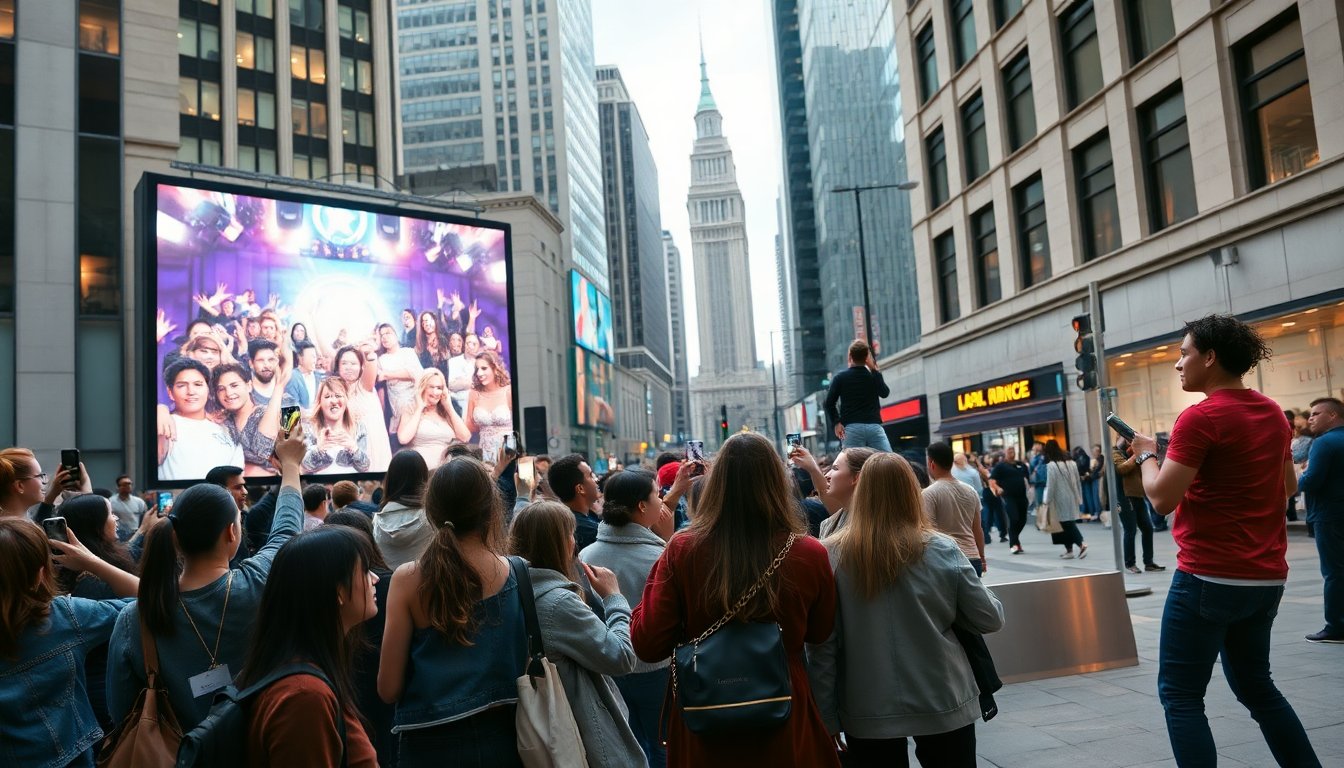Table of Contents
The phenomenon of celebrity culture in America has undergone a profound transformation in the 21st century. As we navigate a digital world, traditional notions of fame and public admiration have evolved. This evolution is heavily influenced by the rise of social media platforms. This article examines how these changes have reshaped the landscape of American celebrity, creating new norms and expectations for public figures.
Historically, celebrities were defined by their work in film, music, or television. However, platforms like Instagram, Twitter, and TikTok have democratized fame. They allow individuals from diverse backgrounds to achieve celebrity status overnight. This shift raises important questions about the nature of fame and the criteria defining a celebrity in contemporary society.
The Rise of Social Media Influencers
Social media influencers have become a dominant force in the realm of celebrities. Unlike traditional stars who often relied on agents and PR teams, influencers leverage their own platforms to connect directly with their audience. This direct interaction fosters a sense of authenticity and relatability, aspects that traditional celebrities often struggle to maintain. Influencers can rise to fame by sharing their lives, opinions, or expertise, often building loyal communities around their content.
Authenticity vs. Celebrity
One of the most significant shifts in celebrity culture is the emphasis on authenticity. While past celebrities were seen as distant figures, today’s influencers thrive on being perceived as genuine. Followers are drawn to their unfiltered lives, making the influencer’s personality just as important as their content. This has created a new breed of celebrity—one that is approachable and relatable, yet still highly aspirational.
This shift in values has also led to a redefinition of success. In a world where anyone can become a star, the concept of a traditional celebrity is increasingly challenged. Many influencers now boast more followers than established stars, demonstrating that popularity is no longer solely linked to traditional media appearances.
Changing Values and Representation
Another critical aspect of the transformation in American celebrity culture is the growing focus on representation and diversity. In previous decades, the majority of celebrities were white, cisgender, and often conformed to specific beauty standards. However, the modern era sees a broader spectrum of identities and experiences represented in the celebrity sphere.
The Impact of Representation
This shift is vital as it allows individuals from marginalized communities to see themselves represented in the public eye. Celebrities like LGBTQ+ icons, people of color, and those with disabilities have gained visibility and acceptance, leading to a more inclusive understanding of what it means to be famous. With campaigns advocating for diversity and representation, the entertainment industry is slowly transitioning towards a more equitable landscape.
Moreover, this new representation often comes with a responsibility. Many modern celebrities use their platforms to advocate for social justice, mental health awareness, and environmental issues. This activism contrasts sharply with the more self-indulgent personas of past celebrities, showcasing a shift towards a more socially conscious celebrity culture.
The Impact of Cancel Culture
As celebrity culture evolves, so too does the concept of accountability. The rise of cancel culture—the practice of withdrawing support for public figures after they have done or said something considered objectionable—has introduced a new layer of complexity to fame. Celebrities can no longer operate in a vacuum; their actions and words are subject to unprecedented scrutiny.
This phenomenon has created a culture where public figures must navigate their careers with acute awareness of social issues. A single misstep can lead to a rapid decline in public support, making it crucial for celebrities to align themselves with the values of their audience. This shift emphasizes the importance of integrity and responsibility in the pursuit of fame.
Conclusion
Historically, celebrities were defined by their work in film, music, or television. However, platforms like Instagram, Twitter, and TikTok have democratized fame. They allow individuals from diverse backgrounds to achieve celebrity status overnight. This shift raises important questions about the nature of fame and the criteria defining a celebrity in contemporary society.0


